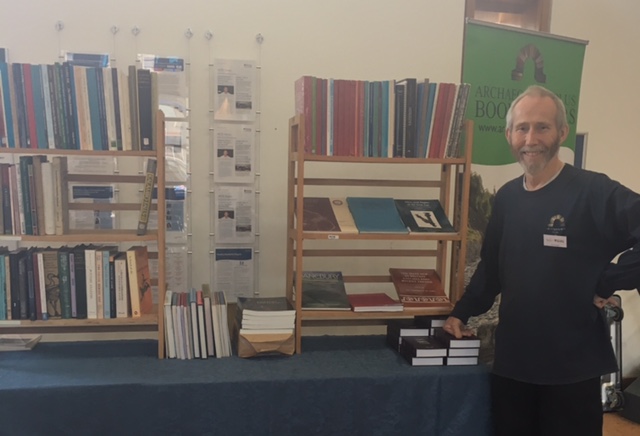
On Saturday 22nd April 2017 the Henley Business School at Reading University’s Whiteknights campus was home to the Prehistoric Society’s Late Iron Age Oppida conference.

After an early start and a smooth journey, Chris and Lizzy the Apprentice had a very successful day of bookselling, networking, and meeting new customers, along with some familiar faces. Considering it was Lizzy’s first conference, here’s how she got on…
“I found it extremely interesting, especially when we got the chance to dip into some of the lectures. I found out about the specifics of earthworks surveys and how they help to map out the area during digs. It was so fun to meet all the new people, find out their interests and help them to find what they were looking for, whether we had brought it with us or I knew it was on the shelves back home. It was, overall, a really fun day (albeit sometimes a little manic when the bookstall was flooded with people). It was absolutely jam-packed with information, new faces, and new opportunities.”

Chris was very pleased to have spotted numerous notable figures of prehistoric archaeology, including Mike Fulford, Philip Crummy, Richard Bradley, and Sir Barry Cunliffe (who certainly looked happy to see a selection of his books on Danebury and other hillforts selling rapidly). The excellent papers and accomplished company made for a fantastic day, and he can’t wait for the next conference.

Many congratulations to Simon Smith- the winner of our £100 voucher prize draw- from all of us here at Archaeology Plus, and Patter the Office Dog!!
We’d like to thank everyone at The Prehistoric Society and Reading University for accommodating us, and another huge thank you to all the speakers, and of course everyone who bought our books!


